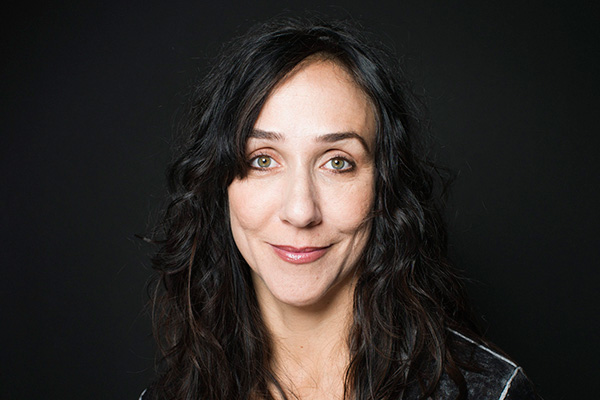Interview: Gabriela Cowperthwaite
Director of Blackfish
Yeah, you know, I told a story. I came in as a mother who took her kids to SeaWorld and a documentary filmmaker who thought that this incident with the trainer being killed by that killer whale was a one-off, an anomaly, and wanted to do a completely different film about things like this and human beings and our relationships with our animal counterparts. And only then did I discover, really, what … lay beneath the surface. So I went in with a question, and I followed Tilikum’s story. Tilikum is the whale who killed Dawn Brancheau, and I go back 40 years to his capture, and just kind of follow his trajectory, and I let that be the guiding force in the film.
You didn’t seem to have a problem getting hold of former SeaWorld employees to be part of the film, but it seemed to be difficult to get SeaWorld itself to be part of the film.
Correct. There were some folks who had become a little bit vocal after the death of Dawn Brancheau and heard the spin that was coming out of that park and they smelled a rat. They said, “it couldn’t have happened this way, and here’s why.” … There were also people who backed out of being interviewed at the last minute and said “if I’m an upstart, I will never work in the zoological industry again, and so I need to not speak out against SeaWorld.”
But I was just looking for the truth. They were part of my fact-finding, and SeaWorld was too. In fact, I tried very hard to have them in the film – I gave them my list of questions, which is unheard of in a documentary. I thought they would be a voice in the film, and look, I was interested in hearing what everybody had to say on the topic. And six months later they declined, but have recently come out with some accusations against the film, right before the film was released. So we knew they had to say something at some point. But yeah, they were welcome the whole time to be part of the film.
The first time I heard of this film being made was during a conversation with a marine biologist here at the university some months ago … something that came up was the ability to trace so much of the captive orca population back to a sole progenitor, that being Tilikum. Over 50 per cent of all captive whales are his, right? His descendants?
Yeah, that’s a frightening one, isn’t it? That’s a pretty shocking one to people. Yeah, over 50 per cent are tagged in SeaWorld’s collection as being sired by Tilikum. So he’s the top breeder: he’s responsible for over 50 per cent of all the killer whales at SeaWorld, and this was after he had been associated with the two previous deaths. This was after he’d killed two people.
Where does that fit though, do you think, in terms of nature and nurture?
That’s interesting. I mean it’s always an interesting question in terms of “okay, is this really a genetic thing that we’re so afraid to pass on?” … Alexis Martínez, in the Canary islands [was] killed by [bull orca] Keto, and Keto just turned on him and killed him in a matter of seconds, and this was just a few months before Dawn was killed. And not a lot of people know this story, but Keto was captive-born – he was not taken from the wild, this was a completely new gene pool. He was not Tilikum’s.
[In] hundreds of the documented cases of whales aggressing or attacking trainers, it doesn’t matter if they came from the wild or if they were captive, if they came from Tilikum or not. They’ve all had – pretty much every killer whale has had – an incident that could be considered aggressive, heavy frustration, or whatnot. So there’s no real correlation to genetics or captive-born or wild-born, but it’s just that all of them, all of them have the capability. …
I feel very strongly that killer whales are not suitable for captivity, that there’s no way we can ever give them what they need to thrive, let alone survive, and that it’s actually increasingly dangerous for us to keep trying.
Is it a cause you will continue to fight for after the film? Is it a new crusade for you?
I don’t think it will ever reach activist proportions, it’s just not my personality, but I believe that it’s kind of landed in my lap. As a mother who took her kids to SeaWorld, I have a very odd voice, to suddenly have this story drop right in front of me, but I do believe that the film could be an agent of change and I’m going to hopefully help it do that in whatever way I can.






